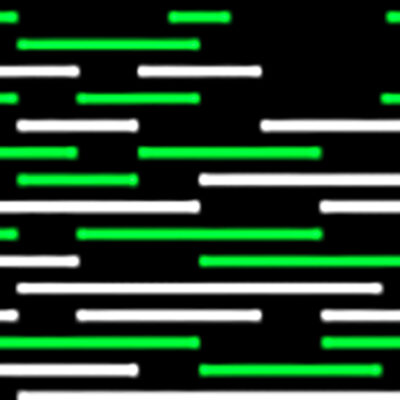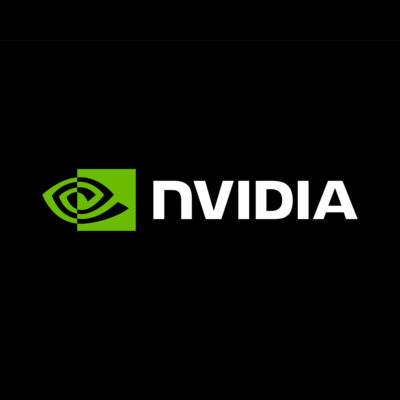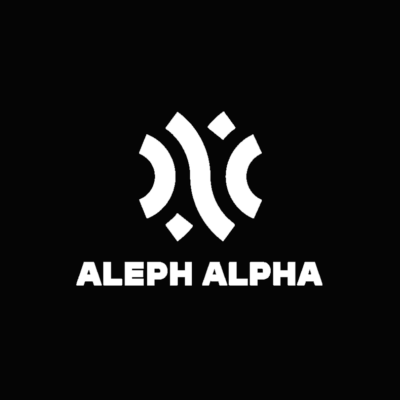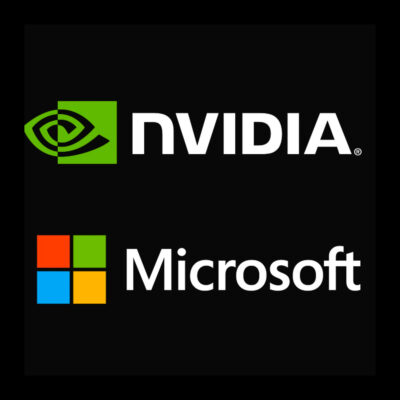Compare Models
-
OpenAI
GPT-3.5-turbo 4k
$0.002GPT-3.5-turbo is an upgraded version of the GPT-3 model. It was designed to provide better performance and is well-known as the model that, by default, powers ChatGPT (however, paying customer who subscribe to ChatGPT Plus can change the model to GPT-4 before you start a chat).GPT-3.5-turbo is optimized for conversational formats and is superior to GPT-3 models, and the performance of GPT-3.5-turbo is on par with Instruct Davinci-003 (however is also ten times cheaper and has been seen to be three times faster). GPT-3.5-turbo was trained on a massive corpus of text data, including books, articles, and web pages from across the internet and is used for tasks like content and code generation, question answering, translation, and more. In some cases, GPT-3.5-turbo results can sometimes be too “chatty” or “creative”. Access is available through a request to OpenAI’s API or through the web application (try for free). -
OpenAI
GPT-4 32K context
$0.12GPT-4 is OpenAI’s new design that incorporates additional improvements and advancements, including being multimodal so it can take both text and image inputs. With broad general knowledge and domain expertise, GPT-4 can follow complex instructions in natural language and solve difficult problems with accuracy. GPT-4 has a more diverse range of training data, incorporating additional languages and sources beyond just English. This means that the model will be able to process and generate text in multiple languages and better understand the nuances and subtleties of different languages and dialects. This is the extended 32k token context-length model, which is separate to the 8k model (and is more expensive).
GPT-4 API access is now available.
Note: At the time of writing, ChatGPT Plus subscribers can access Chat GPT-4 by logging into the web application.
-
OpenAI
GPT-4 8K context
$0.06GPT-4 is OpenAI’s new design that incorporates additional improvements and advancements, including being multimodal so it can take both text and image inputs. With broad general knowledge and domain expertise, GPT-4 can follow complex instructions in natural language and solve difficult problems with accuracy. GPT-4 has a more diverse range of training data, incorporating additional languages and sources beyond just English. This means that the model will be able to process and generate text in multiple languages and better understand the nuances and subtleties of different languages and dialects. There are a few different GPT-4 models to choose from. The standard GPT-4 model offers 8k tokens for the context. GPT-4 API access is now available.
Note: For the ChatGPT web application, ChatGPT is powered by GPT-3.5 turbo by default. However, if you are a paying customer and subscribe to ChatGPT Plus, you can change the model to GPT-4 before you start a chat.
-
NVIDIA
LaunchPad
FREENVIDIA LaunchPad provides free access to enterprise NVIDIA hardware and software through an internet browser. NVIDIA customers can experience the power of AI with end-to-end solutions through guided hands-on labs or use NVIDIA-Certified Systems as a sandbox, but you need to fill out an Application Form and wait for approval. Sample labs include training and deploying a support chatbot, deploying an end-to-end AI workload, configuring and deploying a language model on the hardware accelerator, and deploying a fraud detection model.*FREE via Application Form -
Aleph Alpha
Luminous-base
$0.0055Aleph Alpha have the Luminous large language model. Luminous models vary in size, price and parameters. Luminous-base speaks and writes 5 languages: English, French, German, Italian and Spanish and the model can perform information extraction, language simplification and has multi-capable image description capability. Aleph Alpha is targeting “critical enterprises” — organizations like law firms, healthcare providers and banks, which rely heavily on trustable, accurate information. You can try Aleph Alpha models for free. Go to the Jumpstart page on their site and click through the examples on Classification and Labelling, Generation, Information Extraction, Translation & Conversion and Multimodal. Aleph Alpha are based in Europe, allowing customers with sensitive data to process their information in compliance with European regulations for data protection and security on a sovereign, European computing infrastructure. -
Aleph Alpha
Luminous-extended
$0.0082Aleph Alpha luminous-extended is the second largest model which is faster and cheaper than Luminous-supreme. the model can perform information extraction, language simplification and has multi-capable image description capability. You can try Aleph Alpha models with predefined examples for free. Go to at the Jumpstart page on their site and click through the examples on Classification and Labelling, Generation, Information Extraction, Translation and Conversion and Multimodal. Aleph Alpha are based in Europe, which allows customers with sensitive data to process their information in compliance with European regulations for data protection and security on a sovereign, European computing infrastructure. -
Aleph Alpha
Luminous-supreme
$0.0319Supreme is the largest model but the most expensive Aleph Alpha Luminous model. Supreme can do all the tasks of the other smaller models (it speaks and writes 5 languages, English, French, German, Italian and Spanish and can undertake Information extraction, language simplification, semantically compare texts, summarize documents, perform Q&A tasks and more) and is well suited for creative writing. You can try out the Aleph Alpha models for free. Go to the Jumpstart page on their site and click through the examples on Classification & Labelling, Generation, Information Extraction, Translation & Conversion and Multimodal. -
Aleph Alpha
Luminous-supreme-control
$0.0398Supreme-control is its own model, although it is based on Luminous-supreme and is optimized on a certain set of tasks. The models differ in complexity and ability but this model excels when it can be optimized for question and answering and Natural Language Inference.You can try out the combination of the Aleph Alpha models with predefined examples for free. Go to at the Jumpstart page on their site and click through the examples on Classification & Labelling, Generation, Information Extraction, Translation & Conversion and Multimodal. -
Microsoft, NVIDIA
MT-NLG
OTHERMT-NLG (Megatron-Turing Natural Language Generation) uses the architecture of the transformer-based Megatron to generate coherent and contextually relevant text for a range of tasks, including completion prediction, reading comprehension, commonsense reasoning, natural language inferences, and word sense disambiguation. MT-NLG is the successor to Microsoft Turing NLG 17B and NVIDIA Megatron-LM 8.3B. The MT-NLG model is three times larger than GPT-3 (530B vs 175B). Following the original Megatron work, NVIDIA and Microsoft trained the model on over 4,000 GPUs. NVIDIA has announced an Early Access program for its managed API service to the MT-NLG model for organizations and researchers. -
NVIDIA
NeMo
FREENVIDIA NeMo, part of the NVIDIA AI platform, is an end-to-end, cloud-native enterprise framework to help build, customize, and deploy generative AI models. NeMo makes generative AI model development easy, cost-effective and fast for enterprises. NeMo has separate collections for Automatic Speech Recognition (ASR), Natural Language Processing (NLP), and Text-to-Speech (TTS) models. Each collection consists of prebuilt modules that include everything needed to train on your data. NeMo framework supports both language and image generative AI models. Currently, the workflow for language is in open beta, and the workflow for images is in early access. You must be a member of the NVIDIA Developer Program and logged in with your organization’s email address to access it. It is licensed under the Apache License 2.0, which is a permissive open source license that allows for commercial use. -
StableLM
StableLM-Base-Alpha -7B
FREEStability AI released a new open-source language model, StableLM. The Alpha version of the model is available in 3 billion and 7 billion parameters. StableLM is trained on a new experimental dataset built on The Pile, but three times larger with 1.5 trillion tokens of content. The richness of this dataset gives StableLM surprisingly high performance in conversational and coding tasks, despite its small size. The models are now available on GitHub and on Hugging Face, and developers can freely inspect, use, and adapt our StableLM base models for commercial or research purposes subject to the terms of the CC BY-SA-4.0 license.
-
OpenAI
text-davinci-003
$0.02Text-davinci-003 is recognized as GPT 3.5 and is a variant of the GPT-3 model. While both Davinci and text-davinci-003 are powerful models, they differ in a few key ways. Text-davinci-003 is a newer and more capable model explicitly designed for instruction-following tasks. Text-davinci-003 was trained on a more recent dataset containing data up to June 2021. It can do any language task with better quality, longer output, and consistent instruction-following than the Curie, Babbage, or Ada models. Text-davinci-003 supports a longer context window (max prompt plus completion length) than Davinci.For those requesting the OpenAI’s API, GPT-3.5-turbo may be a better choice for tasks that require high accuracy in math or zero-shot classification and sentiment analysis than text-davinci-003. To note, GPT-3.5-turbo performs at a similar capability to text-davinci-003 but at 10 percent the price per token. OpenAI recommends GPT-3.5-turbo for most use cases.







